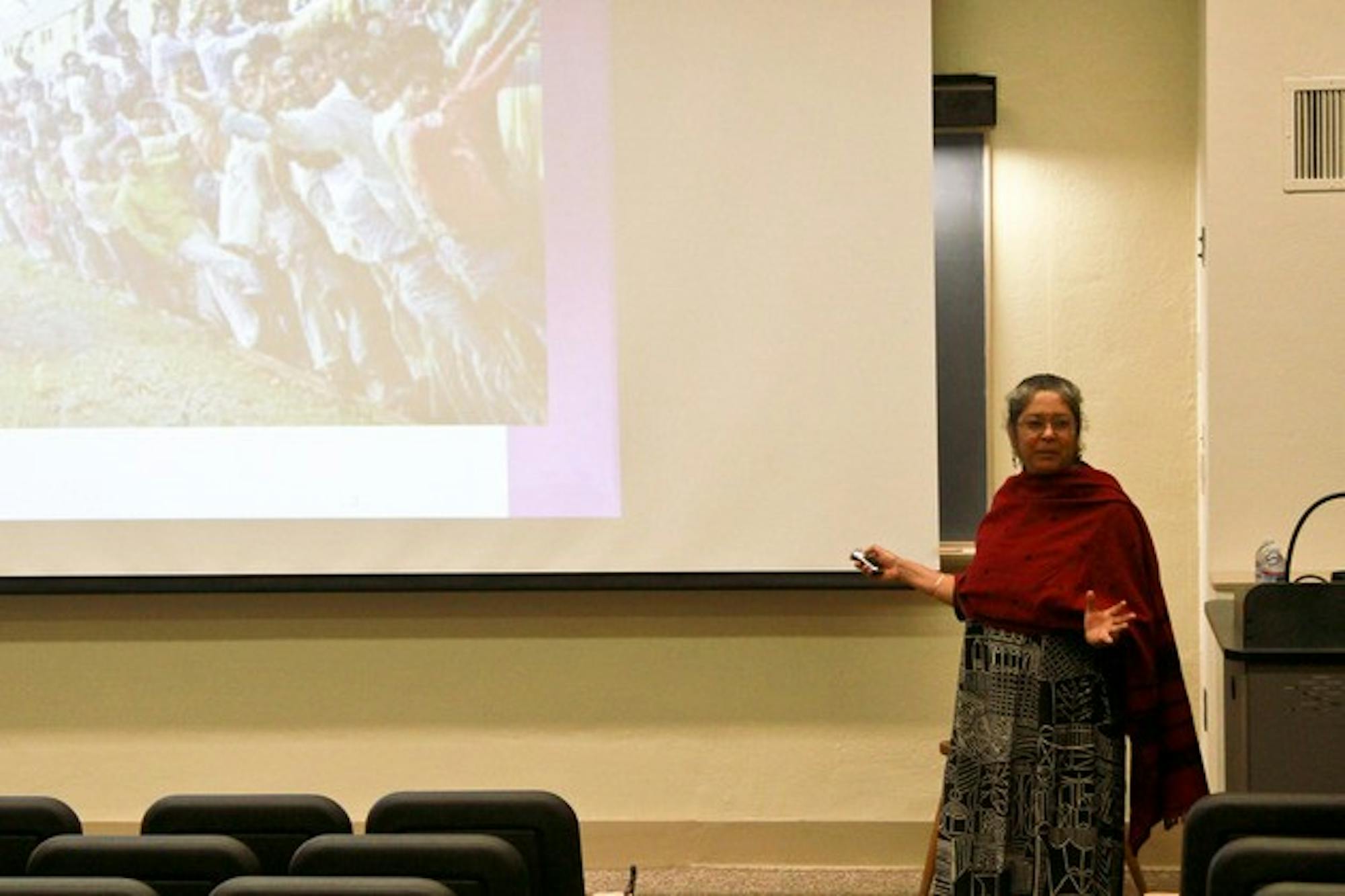Twentieth century Indian methods of limiting population growth including forced sterilization camps for men and women would provoke outcry if they were to occur in the Western world, Prasad said. In an attempt to modernize society and give women greater reproductive rights, the Indian government has begun to sterilize women as young as age 25 after their second or third child, she said. The Indian government views the procedures as beneficial to the nation's development and labels those who fail to comply as "backwards" or rooted in the past, Prasad said.
"[This shows] the slow struggle versus a state and machinery that is extremely coercive and oppressive," she said.
The state's notions of modernity and population control directly conflict with traditional social norms, and women are often caught between the two ideals, Prasad said.
"Choice is something that you and I have," Prasad said. "For women in India, choice and rights are something they know little about."
Despite the sometimes-oppressive nature of Indian society, Prasad said she is hopeful that Indian women will have an expanded societal role in the future.
"The burden of transforming India to a modern nation' rests on women," she said.
Prasad criticized the government for marketing reproductive health as a bastion of freedom from an oppressive society while doing little to address malaria and other diseases that are not related to the birth rate but pose a considerable threat. Prasad recommended education as a viable alternative to the government's sterilization tactics.
"If we improve health and make it accessible and provide educational facilities, there is no need for population control," she said.
A rise in female feticide has been an unexpected consequence of population control, Prasad said. Because most couples want at least one male child, many choose to abort female fetuses so they can continue to try to have a boy, she said.
Planned Parenthood founder Margaret Sanger was "instrumental" in pushing India into modernity, according to Prasad. Sanger brought new birth control methods to the Indian subcontinent and aided the nascent British colonial efforts to promote reproductive health and awareness, she said.
In 1952, India became the first nation to implement a family planning policy, which was part of former Indian Prime Minister Jawaharlal Nehru's vision for a modern nation, Prasad said. The policy began as a welfare program for the poor, but developed into forced contraception by means of invasive procedures, she said.
Ayda Ramadan '13, who will travel to India this winter on a foreign study program sponsored by the women and gender studies and Asian and Middle Eastern studies departments, said she was intrigued by Prasad's lecture.
"Hearing this from Prasad was different than reading it in a journal because [she] brought in a social aspect," Ramadan said.
The lecture, which took place in Carpenter Hall, was co-sponsored by the women and gender studies program, the Asian and Middle Eastern studies program and the Dickey Center for International Understanding.




